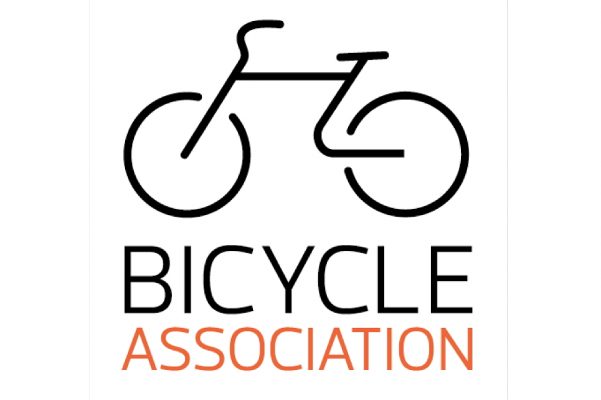Bicycle Association calls for e-bike incentives after lockdown sales data reveals explosive growth for lower-priced bikes but e-bike boom stalled
Bicycle Association calls for e-bike incentives after lockdown sales data reveals explosive growth for lower-priced bikes but e-bike boom stalled.
>>> All you need to know about electric mountain bikes
Whilst this info arguably mainly refers to commuting/leisure e-bikes – electric mountain bike sales are booming by all accounts – it is interesting to see figures about the entry level bike boom.
Bicycle Association press release
The first official industry statistics on UK bike and e-bike sales under lockdown have boosted the case for e-bike purchase incentives, according to the Bicycle Association – the national trade body for the UK cycling industry – which has used its Market Data Service to reveal accurate details of the country’s COVID-19 bike buying for the first time.
When lockdown was imposed in late March, the data reveals the country was in cautious mood. Bike sales were down by 4% in value, and 8% in numbers of bikes, compared to the first quarter of 2019. E-bikes were also depressed compared to their 2018-2019 year on year growth rate of 50%, with sales for Q1 coming in well below that trend line at just 27% (value) and 29% (number of bikes sold) above the same quarter last year.
A small silver lining for the cycle industry was that for January to March 2020, cycle repairs were up 26% in value as riders looked to repairing or upgrading their existing bikes rather than buying new.
Then lockdown happened and everything changed. The Bicycle Association had lobbied urgently, and successfully, that bike shops were essential businesses and should remain open. Official advice encouraged exercise by bike. And the weather was good.
The public responded, with sales of bikes between £400 and £1000 more than doubling in April 2020 (rising by 112% in number, 99% in value) compared to April 2019. Overall, bike sales rose by 60% (numbers sold) and 57% (in value) but it was clear that functional, affordable bikes were the public priority. Sales of bikes over £3000 actually fell amid the boom.
Lockdown did see e-bikes recover some pace, with April growth compared to the same month in 2019 reaching 55% (value) and 48% (volume). But that is just the normal level that would be expected of the UK’s small but growing e-bike market, with its longer-term 50% growth rate. So e-bikes didn’t see any significant lockdown boost in April. In fact, the percentage of all bikes sold which were e-bikes dropped by 2% compared to the first quarter of the year.
Steve Garidis, the BA’s Executive Director, said: “It’s brilliant that the UK has been out buying and repairing their bikes under lockdown. Especially for commuters, every journey made by bike frees up space for those who have no alternative to using public transport. E-bikes have the potential to make even longer or more hilly cycling commutes practical and enjoyable – which is why it’s disappointing that take-up under lockdown hasn’t accelerated as it has for bikes. We suspect that many people still don’t know just how good modern e-bikes are – or they are put off by the cost. That’s why the BA believes this data for April reinforces the case for the Government to really push e-bikes as a transport solution with a purchase incentive scheme.”
E-bikes have huge potential to relieve the pressure on other modes of transport hard hit by COVID-19, without adding to city congestion. BA analysis using the DfT-funded Propensity to Cycle tool suggests that widespread uptake of e-bikes could boost the percentage of commuter journeys cycled by up to 40%, even before new safe cycle route networks are built. The more widely e-bikes are available, the quicker this boost to cycle commuting could be realised.
The BA has therefore urged Government to urgently stimulate the e-bike market by:
• Addressing the cost barrier with direct financial incentives: evidence shows that a purchase incentive of as little as £250 would double sales of e-bikes over just 12 months.
• Addressing the awareness barrier by implementing a public awareness campaign and promotions to show Government endorsement and encouragement of e-bikes as a mode of transport.
This call follows a high-impact academic report from the Centre for Research into Energy Demand Solutions, based at the University of Oxford, which revealed that e-bikes, if used to replace car travel, have the capability to cut car carbon dioxide (CO2) emissions in England by up to 50% (about 30 million tonnes per year). CREDS also recommends “A major e-bike grant purchase subsidy” as part of their proposal for a “green shovel ready” recovery package.
The BA has also proposed further measures to Government, including:
• Follow-on funding for cargo e-bikes, city-scale cycle logistics trials, and measures to incentivise personal and family cargo bike use.
• Including e-bikes as an equal value option in any car scrappage scheme, to take the most polluting cars off the road and replace them with e-bikes, the lowest of low-emissions vehicles.
• VAT zero-rating across all cycling products, with BA modelling showing a £5 benefit to the economy for each £1 foregone in VAT.
Steve Garidis added: “As lockdown eases there’s just a short window of opportunity for the UK to build itself a cleaner, lower-carbon and healthier transport system. E-bikes and cycling must be a core part of that, which is why we’ve made detailed proposals to Government as they develop plans for a post-lockdown stimulus package.”




